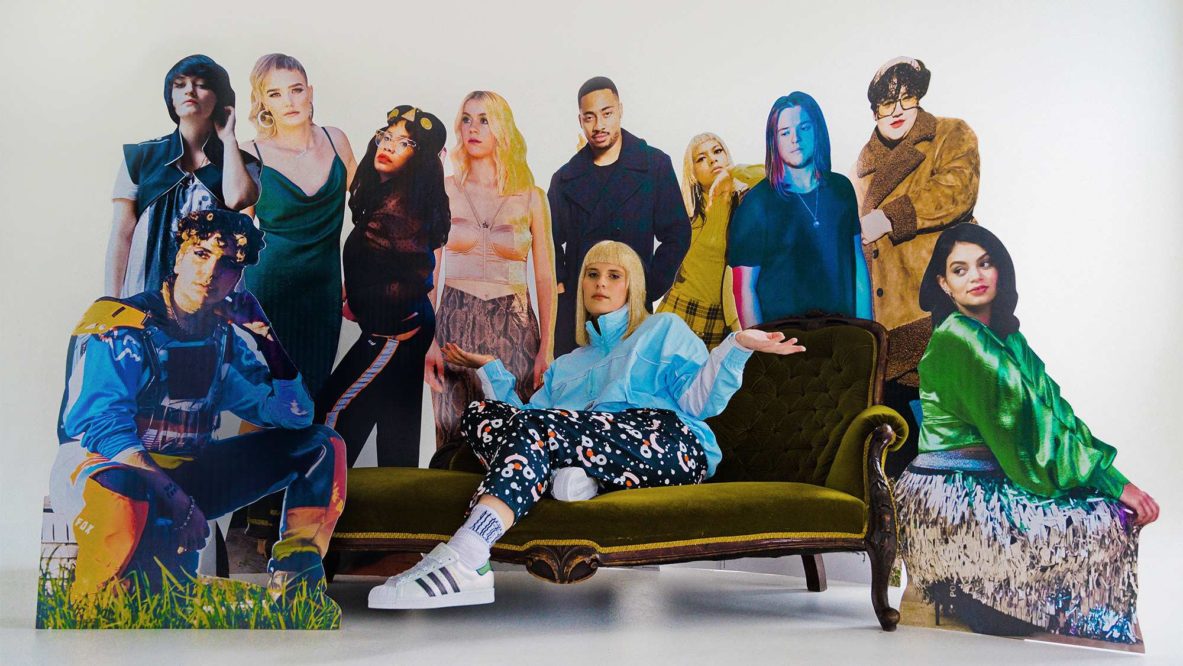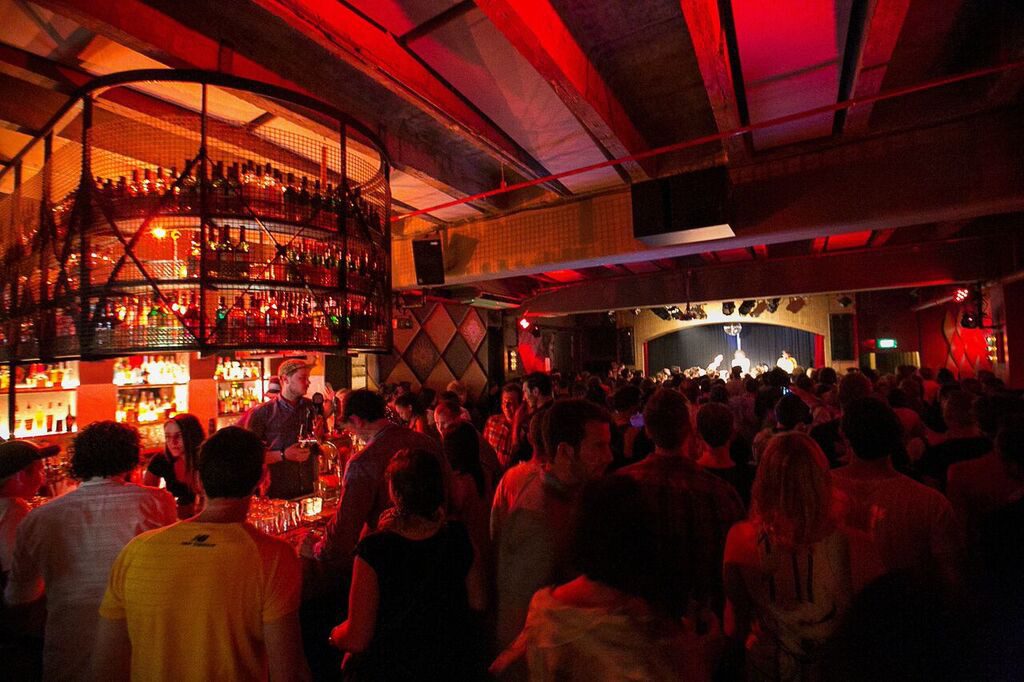

Producer Alice Ivy (otherwise known as Annika Schmarsel) has become a name to know in the Melbourne music scene; her blend of ’90s house beats, lush layers of synths and raw instruments along with a voice sweetly attuned to pop sensibilities made her 2018 debut I’m Dreaming an instant cult classic. Whether fans hear her doing cover versions on radio, such as the 2018 Like A Version session she did for Australian radio station Triple J (in which she covered “American Boy” by Estelle), or whether fans come to her via a collaboration she’s done with a popular artist like Bertie Blackman (“Chasing Stars“), she’s built a solid base of support for her exciting pop-dance productions. It is Ivy’s skill for partnering with complementary collaborators that makes her sophomore album Don’t Sleep such a revelatory follow-up.
Ivy’s influences include Kaytranada, the xx, The Avalanches, J Dilla, and in a similar vein, she channels the vibe of fellow Australians Pnau, who build looped beats, keys, glitchy samples and live vocals in studio and live performances. “When I was in my early twenties, and beginning to dabble in electronic production after half a lifetime of playing the guitar, I discovered J Dilla’s monumental album Donuts. It was a major turning point for me. Once I was introduced to the world of sampling I was totally hooked,” Ivy recently told Acclaim.
Her current influences are a far cry from the clarinet and guitar lessons she was given as a child from well-meaning uncles and aunts. Ivy’s family immigrated to Australia from Germany when she was very young – she was the only child in her kindergarten group (preschool) who didn’t speak fluent English. This ability to traverse languages has echoes in her love for sounds and the ability for seemingly incongruous vocal samples, radio, TV and movies to make sense when partnered with looping keyboards, horns and drums.
At only 27, Ivy has lived long enough to have explored musical genres such as house, Motown, hip hop and acoustic to borrow what she likes and to confidently twist the sounds using the digital tools that younger, DIY artists are so enthusiastic for. Ivy has used multi-faceted software Ableton to mash up her loops, samples, collages of vocals and instrumentals. “I usually build a song around a sample,” she told Linda Mariani, Triple J radio host in 2018. “I started looping stuff, I put delays on keys and started pitching the keys… then I [add] samples to it.”
Ivy played guitar in a 25-piece, all-girl Motown and soul band during high school, The Sweethearts. Her proclivity for using horns as an atmospheric texture reappears across Don’t Sleep, as it did on her first album, proving that not all of us forget everything we learned in high school upon graduation. She would later study for a music industry degree, which is where she was introduced to Ableton.
In 2017, she performed and spoke as part of the global series of TEDx Talks, TEDxYouth@Sydney. Her lively performance covered singles “Charlie” and “Touch,” impressively allowing the young producer to dance about on stage while also manipulating a keyboard, laptop and electric guitar. Her pure focus on the music and clear joy in getting lost in it is palpable.
The eclectic, celebratory nature of what is ultimately a great party album is so much richer for the inclusivity it invites, both from collaborators and listeners. Whether by choice or pure coincidence, Ivy gravitates toward collaborations with BIPOC, LGBTQI, non-binary and female artists. Indigenous Australian singer-songwriter Thelma Plum makes a cameo on “Ticket To Heaven,” which was co-written over five hours in an Air BnB set up as a studio. On “Sweetest Love” she collaborates with operatically-skilled Melbourne singer Montaigne, who is openly bisexual. Canadian rapper Cadence Weapon brings his rapid-fire skills to “Sunrise,” asking – or challenging – “Can you keep up?” “All In For You” is a killer collaboration between Ivy and Papua New Guinea-born, Sydney-based artist Ngaiire, a much respected and celebrated singer-songwriter in her own right. And South African-born, Tamil, Sri Lankan artist Ecca Vandal features on “In My Mind,” one of the album’s standout tracks.
Videos for the album’s singles have promoted the album’s joyous oddball streak. Exuberant solo choreography (courtesy dancer Alex Dyson) lends a visual expression to the vocal dexterity of SAFIA’s Ben Woolner on “Better Man,” a fun and fluent collaboration between two skilled instrumentalists. The video for tropical-edged, reggaeton-infused title track “Don’t Sleep” shows Alice Ivy, imbi the girl, and BOI alternate between synchronized dance moves and roaring around on motorbikes. “If you’re losing the vibe, how do you feel alive in your body and soul?” goes the chorus.
As for the funny, clever promo photos of Ivy with her collaborators, she told Acclaim it was a joint decision by the artist and her photographer. “When it came time to shoot the promo photos for the album, I’d planned this big meet-up in Sydney with most of the collaborators and we were going to pose together for a group photo. My photographer Michelle G Hunder and I were referencing Solange Knowles’ wedding photos for inspiration. But when the pandemic turned up that idea went out the window so I switched it out for me on my lonesome in a warehouse with a bunch of lifesize cardboard cut-outs.”
The imagery might be a humorous, but there’s nothing flippant or two-dimensional about the eclectic, constantly dynamic sophomore LP Don’t Sleep, out now on Dew Process.
Follow Alice Ivy on Facebook for ongoing updates.


